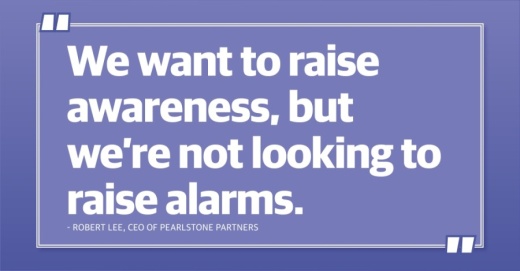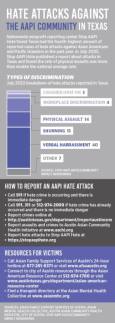During a March 23 news conference, AAPI leaders from across Texas joined together to highlight hate incidents that have occured statewide and to call on elected officials to condemn all incidents of hate against AAPI victims.
Margaret Kercher, a criminal defense attorney based in Austin, during the conference appealed to the city of Austin to establish a hotline specifically focused to take calls about AAPI hate incidents.
“There is a line that the city of Austin provides that is a hate crime-dedicated hotline, and on the city site there is an online form. Something we will be working on is if we can have a dedicated hotline for AAPI incidents,” Kercher said.
The national nonprofit reporting center Stop AAPI Hate in March published its report on incidents reported to the group from March 2020 to February 2021. In all, Stop AAPI Hate stated it received 3,795 incidents from across the U.S.—a “fraction of the number” of incidents that actually occur, according to the nonprofit.
In a July 2020 report that focused solely on incidents reported in Texas, Stop AAPI Hate found that physical assaults counted for 22% of all incidents in the state. That rate was more than double the rate of the national average.
The summer report highlighted several hate incidents in the Austin area. The reports included cases of verbal harassment and victims being called racial slurs. In one incident in Sunset Valley, a man spit at the victim. According to Stop AAPI Hate, an Asian American-owned bakery in Austin received “threats and harassment” after being featured in an article.
Of those nearly 4,000 incidents reported to Stop AAPI Hate in the past year, 103 came from Texas. That makes it the fourth-highest reporting state nationwide, though more than half of U.S. incidents occurred in New York and California alone.
“Here in Austin, we’ve been blessed. We’ve heard of a few minor incidents, but nothing we’ve seen of the level in New York,” said Robert Lee, CEO of local development firm Pearlstone Partners. “We want to raise awareness, but we’re not looking to raise alarms.” Locally, Lee said AAPI leaders are holding some conversations with law enforcement agencies to create systems and databases to track hate incidents against members of the AAPI community.
Kercher added she has heard about some hesitancy to reach out to law enforcement from members of the AAPI community. While she encourages everyone to call 911 during an emergency, Kercher said that hesitancy makes establishing community-based support important.
“The main thing we need to focus on is getting people to report these incidents and tracking these incidents,” Kercher said.
The Asian Family Support Services of Austin may be one of those community-based leaders that can help provide resources to victims of AAPI hate crimes. The nonprofit group provides services in more than 30 languages to AAPI victims of sexual and domestic abuse across Central Texas.
Zahra Shakur Jamal, director of prevention, education and outreach for AFSSA, said the needs within the AAPI community have changed since the pandemic began. Her organization has fielded an increased number of calls reporting sexual violence, including stranger violence, and requests for direct monetary assistance.
Moving forward, Shakur Jamal emphasized the importance for local governments to establish outreach programs for the AAPI community.
“People who need those services are not hearing about those services. There isn’t a language outreach,” Shakur Jamal said.






